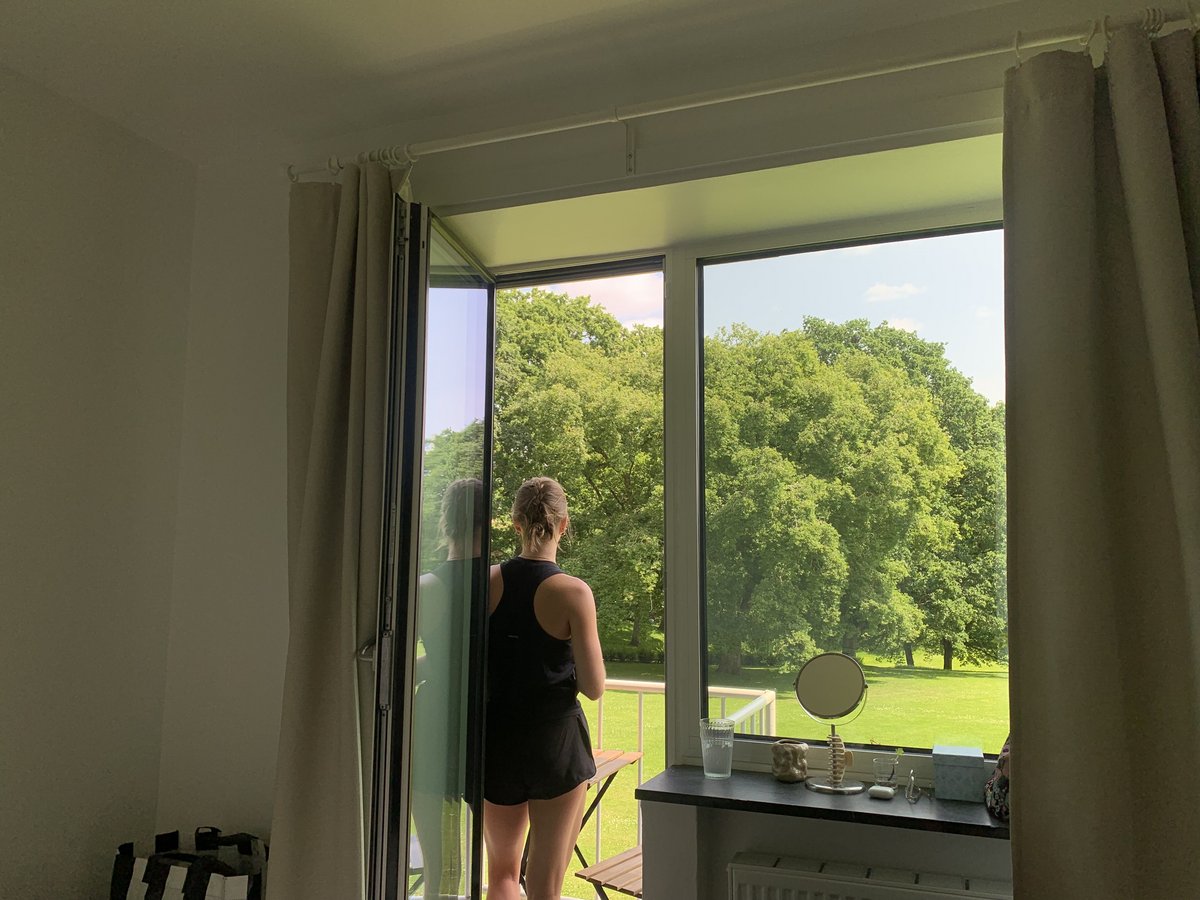The early morning has rook cries in its mouth
The residents of halls 2 and 3 are still being disturbed by noise from the rook colony in the oak trees of University Park. Aarhus University tried to regulate the rook population in the spring by culling the young, but after the end of the regulation period, the rook colony continues to disturb the residents, which is especially critical during the exam period.
![[Translate to English:]](/fileadmin/_processed_/5/2/csm_raagebillede2_f4ec141958.jpeg)
Earlier this month, Omnibus reported on the regulation of juvenile rooks in the University Park, as a colony of rooks settled in the oak trees on top of the amphitheatre during the spring.
Due to the noise from the rooks' cries, the Danish Nature Agency gave permission to cull the rook chicks in the colony. Aarhus University deemed the noise from the black birds to be a health hazard.
AU takes action to reduce rook population in the University Park
The regulation period ended on 15 June, but before then, team leader for the Parks and Gardens Section at AU, Stefan Boldsen Hansen, estimated that the chicks had either been culled or had flown the nest.
But it seems the rook colony still lives by the jet-set life principle of staying up late and waking up early.
Several residents of the two residence halls continue to report annoying noise from the rook colony after the end of the regulation period.
Group therapy in the communal kitchen
When Omnibus reached out to the residents of Parkkollegium 2 and 3 after the end of the regulation period to take stock of the noise from the rook colony, the inbox was bombarded to say the least.
In the communal kitchen on the second floor of residence hall 3, the afternoon atmosphere around the table resembled a group therapy session more than anything else.
"I haven't noticed an improvement at all after the regulation," resident Mads Vilman says.
"I feel it's exactly the same, if not worse. I still wake up at night," adds Liv Hunnekleiv, who lives in the same hall.
"I am moving to the other side of the hall because of the noise from the rooks and the road," she says.
"The balcony door is ajar, which is necessary in the summer because it gets so hot inside the room," Mads Vilman says.
"But then I just get woken up every morning at 5 or 6 by the rooks," he says.
"It's a bit problematic in the summer when you can't sleep with the door or window open. The morning sun is quite warm," another resident, Augusta Banke Føhns, says .
"The rooks are a much-discussed topic here in the hall," Mads Vilman says.
Residents have seen the hunter, Stefan Boldsen Hansen, in action with his small calibre rifle and orange ear defenders.
"I've seen some rooks die," Augusta Banke Føhns states.
Have any of you considered earplugs or a floor fan?
The residents all shake their heads no.
"We might have to start doing that," August Banke Føhns says.
But earplugs are not enough, says Apolonia Knach from residence hall 2, who is also still struggling with rook cries in the early morning hours.
"I usually wake up at five or six in the morning. Last night, however, there was a rook making noise at half past three, so I woke up then too," she says.
“I think the regulation helped a bit at first, but the noise has come back now,” says Apolonia Knach, who is currently studying psychology.
"I have to sleep with the window closed. I've tried earplugs, but it's not enough," she says.
"I can't even sit outside and talk on the phone because it's so noisy sometimes," she says.
Resident of residence hall 2, Cecilie Brinch Ottsen, is also awake every morning at five, alongside Apolonia Knach, parts of residence hall 3, and, of course, the rook colony.
"It disturbs my sleep because I often wake up around five or six o'clock and have a hard time going back to sleep afterwards," she says.
"It's been especially critical here during the exam period, which means I can't have the balcony door open," she says.
Rook hunter: Options are limited
No more rook chicks have been controlled since Omnibus spoke with Stefan Boldsen Hansen, the team leader of the Parks and Gardens Section.
This means that 17 rook chicks were culled during this regulation period.
And there's not much more that can be done," Stefan Boldsen Hansen says.
“The rook is a protected bird, so it is not allowed to set off rockets, climb the trees, or take other measures that might cause them to leave the area. Our options are limited by law,” he says.
"Students probably can't do much either," he says.
The manager of the Student Halls of Residence in the University Park, Anette W. Andersen, expresses that the administration has also come up short when it comes to options for silencing the rooks.
“We manage the buildings, so our authority only extends to the premises and not the park. The park area is owned by the Danish Building and Property Agency," she says.
"There's only so much we can do," she says, adding:
"I understand that it's hard for the residents. Rook cries are annoying as hell," she says.
Rook hunter Stefan Boldsen Hansen emphasises that only the young rooks have either been culled or flown from the nest.
"The rook colony is home to all rooks - young and old," he says.
As a result, residents may still experience noise even though young rooks have been culled in the spring.
The exam period is coming to an end. A good portion of the residents of residence hall 2 and 3 have most likely swapped their screams for an even more extreme soundscape at Roskilde Festival this week.
Since neither the rook hunter, the Student Halls administration, nor the residents have engaged in dialogue with the rook colony about a possible peace agreement, the summer holiday can be used either to find creative ways to reduce the noise or to learn to coexist before the new semester demands rested minds.
Otherwise, residents will continue to resort to group therapy in the communal kitchens and find comfort in the fact that the resident in the room next door may have had an even worse night's sleep.
This article is machine translated and post-edited by Cecillia Jensen



